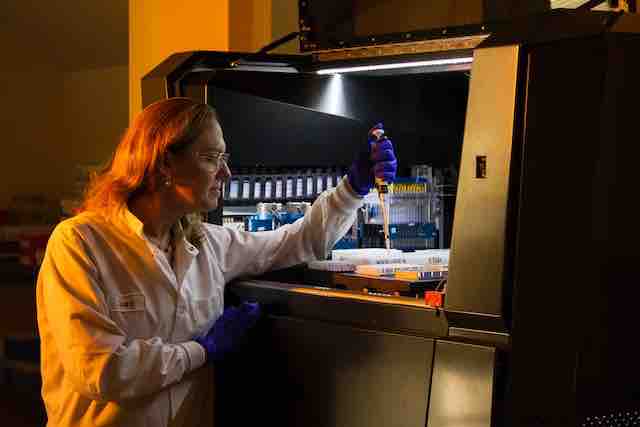DNA sequencing has revolutionized the field of cancer research and treatment, offering hope for longer and better lives for patients. However, despite its tremendous potential, the adoption of DNA sequencing in clinical settings remains disappointingly low. In this article, we delve into the reasons behind the underutilization of DNA sequencing and shed light on its significance in improving cancer care.
The Power of DNA Sequencing in Cancer Treatment
DNA sequencing is a groundbreaking technology that enables scientists to decipher the genetic code of an individual’s DNA. In the context of cancer, it allows for a comprehensive analysis of the genetic alterations driving the disease. By understanding the specific genetic mutations present in a tumor, healthcare professionals can tailor treatment strategies to the unique needs of each patient. This personalized approach holds the key to more effective and targeted therapies, leading to improved outcomes and potentially longer survival rates.
Limited Access and Awareness
One of the primary reasons for the low utilization of DNA sequencing in cancer treatment is the limited access to this advanced technology. DNA sequencing requires sophisticated equipment, highly skilled personnel, and substantial financial resources. Many healthcare institutions, especially those in resource-constrained areas, lack the necessary infrastructure to offer routine sequencing services to cancer patients.
Furthermore, a lack of awareness among healthcare professionals and patients also contributes to the underutilization. The complexity of DNA sequencing and its interpretation can be daunting, leading to a hesitation to adopt the technology. Increased education and training programs are essential to bridge this knowledge gap and empower healthcare providers to embrace DNA sequencing as a standard component of cancer care.
Regulatory and Reimbursement Challenges
Another barrier to the widespread adoption of DNA sequencing in cancer treatment is the regulatory and reimbursement landscape. The regulatory approval process for novel sequencing technologies can be time-consuming, delaying their availability for clinical use. Additionally, reimbursement policies often lag behind the rapid advancements in genomic medicine, making it financially challenging for healthcare institutions to integrate DNA sequencing into routine care.
Addressing these regulatory and reimbursement challenges requires collaboration among policymakers, healthcare providers, and insurance agencies to develop streamlined processes that facilitate the integration of DNA sequencing into cancer treatment protocols.
Ethical Considerations and Patient Privacy
While DNA sequencing offers tremendous benefits, it also raises ethical considerations regarding patient privacy and the potential misuse of genetic information. Safeguarding patient privacy and ensuring that individuals have control over their genomic data is crucial for maintaining trust in the healthcare system. Implementing robust data protection measures and establishing clear guidelines for the ethical use of genomic information are essential to overcome these concerns.
Conclusion
DNA sequencing holds immense promise for extending and improving the lives of cancer patients. However, the underutilization of this powerful technology remains a significant challenge. By addressing limited access, increasing awareness, tackling regulatory and reimbursement hurdles, and upholding ethical standards, we can pave the way for the widespread integration of DNA sequencing into cancer care. It is imperative that we act swiftly to ensure that all patients have equal access to the benefits of genomic medicine, enabling them to receive the personalized and targeted treatments they deserve. Together, we can unlock longer and better lives for cancer patients through the remarkable potential of DNA sequencing.












